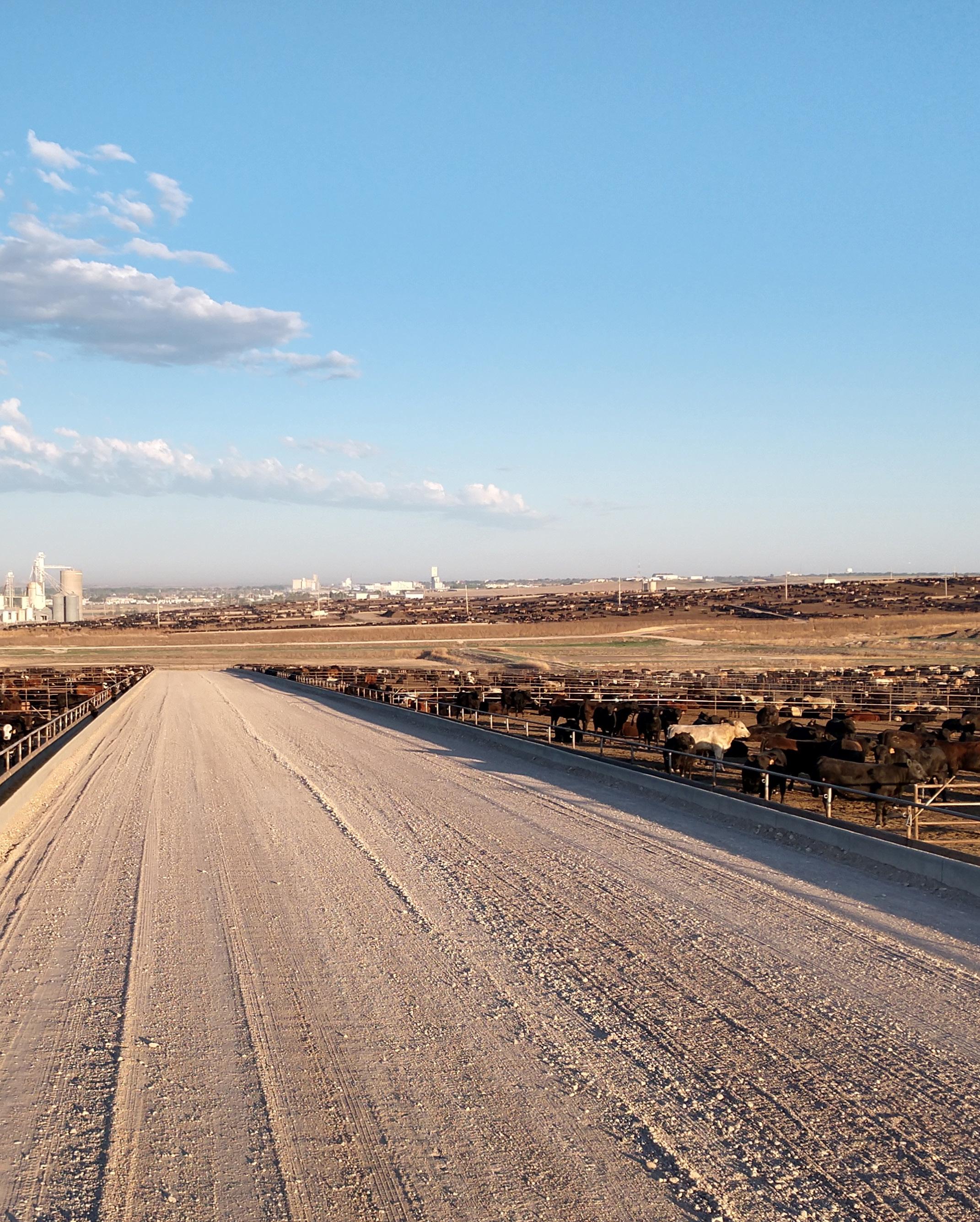
3 minute read
Four Key THings to Avoid In Conflict
By: Dr. Nels Lindberg Production Animal Consultation
“We all need the reminders, and as I tell people, most of my writing occurs from current situations or events, as I need to remind myself. Conflict is tough, occurs routinely, is difficult to remain level headed through, and jerks at our emotions.”

We routinely talk about conflict, the challenges associated with conflict, and having the intentional ability to embrace conflict. Embracing conflict is not natural for anyone and takes an extreme level of self-awareness and steady focus on commonalities of solutions, not the conflict. But our biggest challenge in any conflict tends to be the natural human weakness to react rather than to blow off the steam, count to 1,000, and wait until the next morning to formulate wise words instead of poisonous words. We have all been there. Maybe it was as a head cowboy irritated over a crew not listening and executing the plan for moving a pen of cattle, a crew counting the wrong pen prior to shipping, or a missed holdover fat we could have shipped the next day on a pen of fats. Maybe it’s a feed truck driver who won’t slow down or the never-ending gate battle between cowboy and feed crews. Opportunity for conflict occurs every day in agricultural operations. We must learn to pick our battles and focus on solutions, not problems. There are four things in any conflict both sides have to work very hard to avoid. They are criticism, defensiveness, contempt, and stonewalling. We must talk about these things with our people so that they better understand.
I recently had an experience at an extremely busy restaurant in which there was some confusion with the menu. Given the extreme amount of business and minimal amount of space to operate in, the waitress was short on patience, and us folks from Kansas were a little too slow to order for her fast-paced Boston attitude. She started with criticism of our inability to understand the menu, which I responded to by pointing out the difficulty in understanding how to order. She then got defensive and became sarcastic, so I pointed that out as I couldn’t “pick my battle” and leave it alone. She especially did not like that! That’s when she stonewalled us and sent us another server. My short-written story doesn’t do it justice as you can imagine, but by this time, my daughter Mac wanted to crawl underneath the table! Have you ever been there!? It is laughable at this point, but Mac was not happy and was ready to leave!
The point of the story was not just to share what the waitress (and I found out in the exchange she was also the manager) had done wrong, but to also recognize I was a part of the conflict and didn’t help matters. In this conflict, we did all four things we should avoid during conflict.
We have all been there. We have all started a conversation when something didn’t go right at work or at home with an instant criticism rather than asking an inward-directing question such as “How can I help?” or, “Help me better understand”. We start with, “Why did you do that?”, “What were you thinking?”, or even more pointed, “How in the heck did you get that wrong?”, which then leads to the other person feeling attacked. Our natural instinct is to defend what we did or didn’t do, which often leads to a feeling of disrespect, disregard, or being slighted, and in the end, the worst of all final outcomes, stonewalling. One of us throws down our hands, is mad, turns around, and walks away with- out a word, or perhaps with a few final parting poisonous words. Some just stand there, but they aren’t listening to a word you are saying as you attack the problem but don’t look toward solutions.
We all need the reminders, and as I tell people, most of my writing occurs from current situations or events, as I need to remind myself. Conflict is tough, occurs routinely, is difficult to remain level headed through, and jerks at our emotions. Our heart wants to naturally react, but we must train our cerebrum to respond. This is easier for some than others, and we must all get to the point where embracing conflict becomes a natural response and avoiding criticism, defensiveness, contempt, and stonewalling becomes an innate ability. We will greatly help those around us each day if we do, while gaining more trust from them and in turn getting our crews and our people to achieve improved outcomes for our operations. If you don’t handle conflict well, your people will have less respect for you, trust you less, genuinely dislike you more, and not help you have success as you so desire. And that is not the goal of any caring, genuine, authentic leader. .










